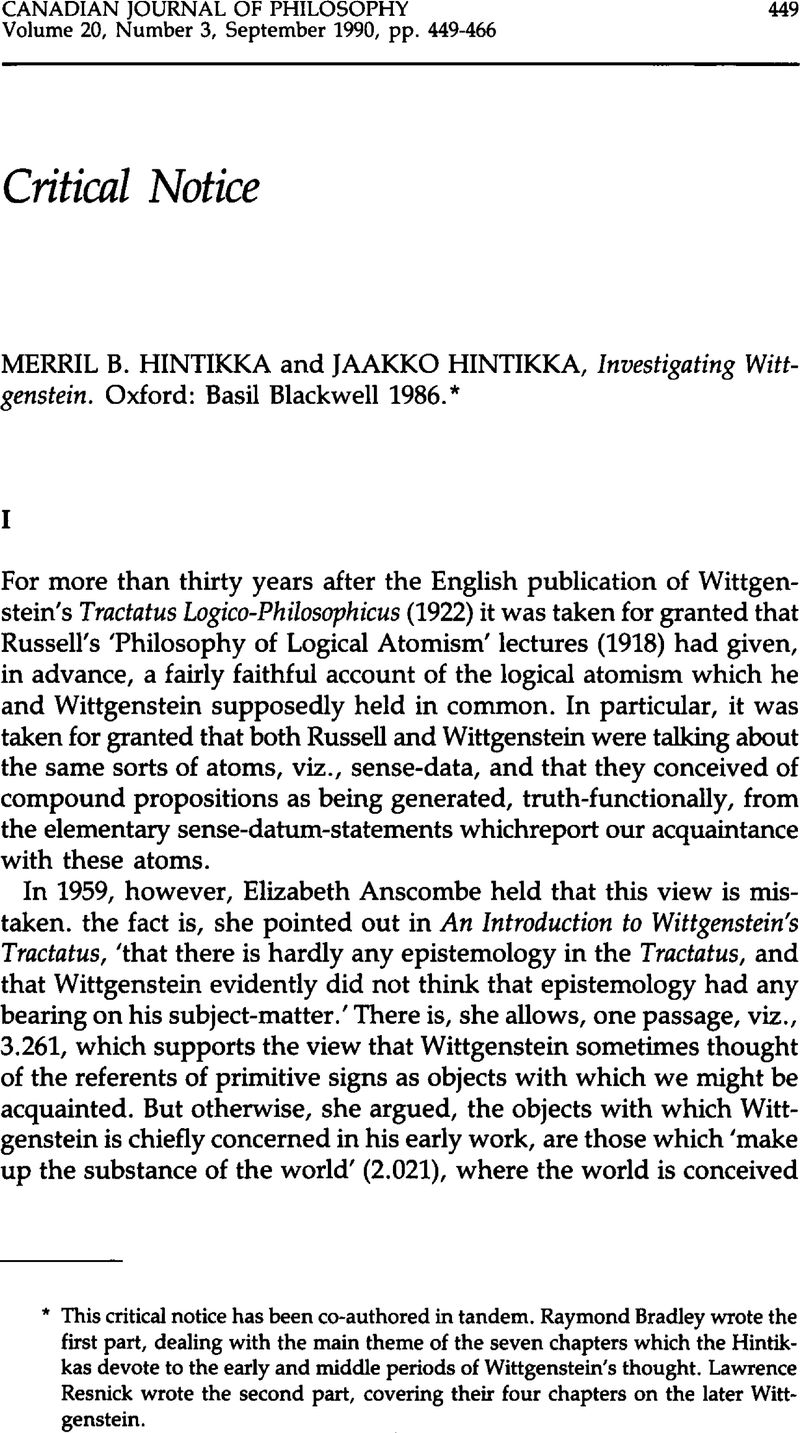Published online by Cambridge University Press: 01 January 2020

This critical notice has been co-authored in tandem. Raymond Bradley wrote the first part, dealing with the main theme of the seven chapters which the Hintikkas devote to the early and middle periods of Wittgenstein's thought. Lawrence Resnick wrote the second part, covering their four chapters on the later Wittgenstein.
1 Wittgenstein says, It can't be said of me at all (except perhaps as a joke) that I know that I am in pain. What is it supposed to mean - except that I am in pain? (PI 246. See also PI 258-71) Undaunted by the text, in which Wittgenstein also argues that if pains were private objects they could not be objects of knowledge, the Hintikkas say, Wittgenstein is not intending his own words to be taken literally when he apparently voices doubts about the certainty of our knowledge of our own private experiences .. . (261).